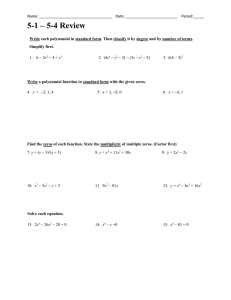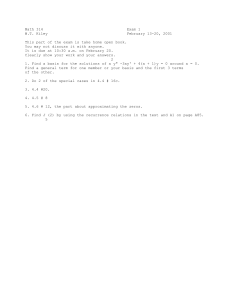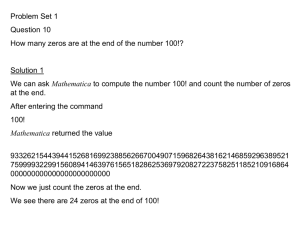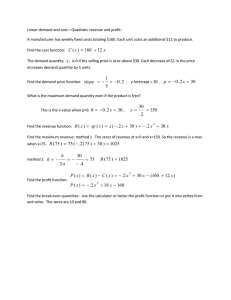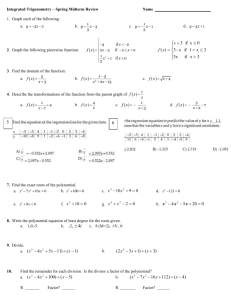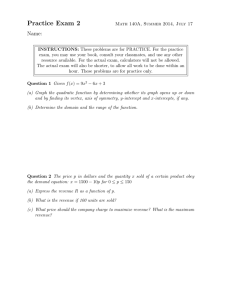3.6 The Real Zeros of a Polynomial Function f Title: Basketball (1 of 7)
advertisement
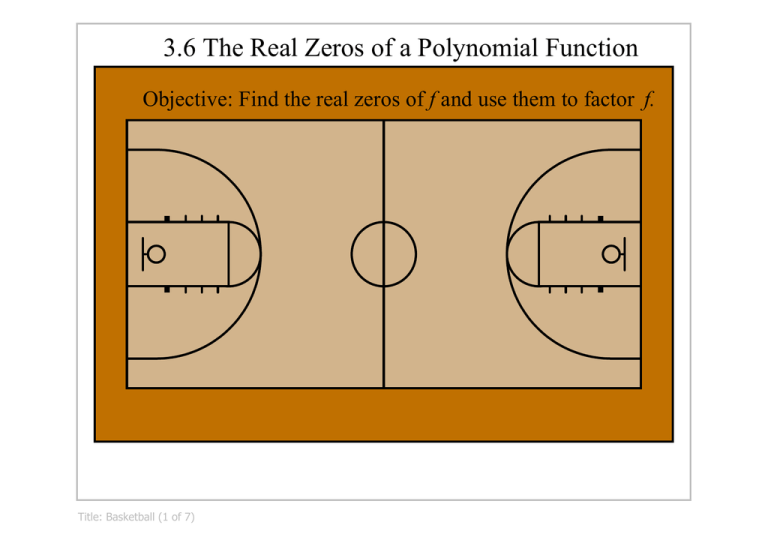
3.6 The Real Zeros of a Polynomial Function Objective: Find the real zeros of f and use them to factor f. Title: Basketball (1 of 7) You can follow a step­by­step process to find the real zeros and factor f. Title: Hockey ­ North American (2 of 7) Example: f(x) = 2x3 + 11x2 ­ 7x ­ 6 Step 1: Use the degree of the polynomial to find the maximum number of zeros. There will be at most 3 real zeros. Step 2: Use the Rational Zeros Theorem to find potential zeros. (Find all factors of "p" and "q" and all ratios of p to q.) p: + 1, + 2, + 3, + 6 q: + 1, + 2 p q + 1, + 1/2, + 2, + 3, + 3/2, + 6 : Title: Nov 25­7:08 PM (3 of 7) Example: f(x) = 2x3 + 11x2 ­ 7x ­ 6 Step 3: Look at the graph on a graphing calculator to find possible zeros. ­6 ­1/2 1 It looks like there are zeros at: ­ 6, ­ 1/2 and 1. Title: Nov 25­7:31 PM (4 of 7) Example: f(x) = 2x3 + 11x2 ­ 7x ­ 6 Step 4: Use long division to test potential rational zeros based on the graph. (Keep repeating step 4 to find all zeros.) ­6 2 11 ­7 ­6 ­12 6 6 2 ­1 ­1 0 ­1/2 2 ­1 ­1 ­1 1 2 ­2 0 1 2 ­2 2 2 0 Title: Nov 25­7:37 PM (5 of 7) Example: f(x) = 2x3 + 11x2 ­ 7x ­ 6 Step 5: Write f in factored form. f(x) = 2(x + 6)(x + 1/2)(x ­ 1) Title: Nov 25­7:46 PM (6 of 7) Homework: page 231 (40 ­ 44, 47 ­ 48) Title: Nov 25­7:51 PM (7 of 7)
